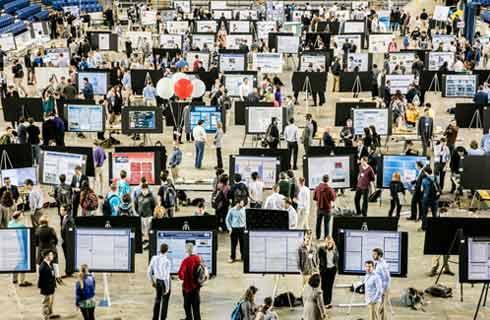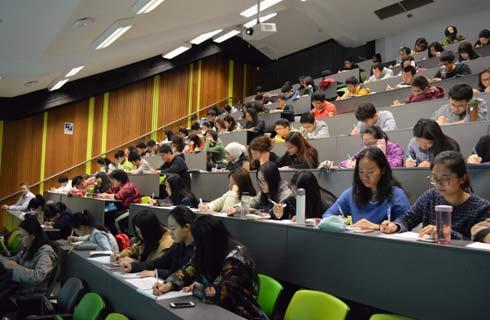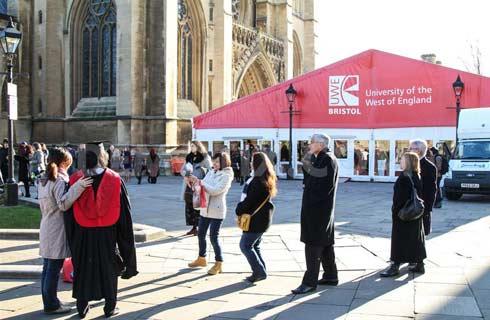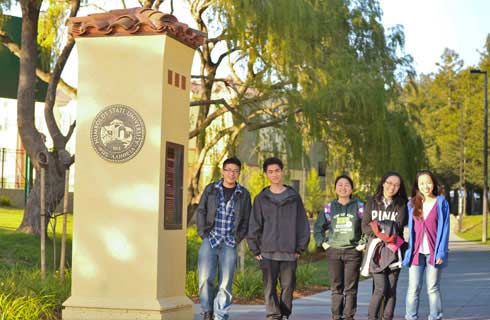国际学生入学条件
High School Transcripts.
Typically, the most important factor in the admission evaluation process is demonstrated academic achievement in a challenging secondary school program.
The admission committee looks for applicants who have completed the most rigorous academic courses available in their secondary schools and recommends that prospective students should exceed minimum high school graduation requirements. We require an official transcript. The secondary program should include no fewer than 16 academic courses and must include the following courses:
English 4 units
Mathematics 4 units
Foreign Language 2 units
Science (from among biology, chemistry, and physics) 2 units (*)
Social Studies 1 unit
A TOEFL or IELTS score should not be more than two years old. Depending on the school, most admitted graduate students attain a minimum total score of 90 on the internet-based (iBT) TOEFL (including sectional minimums of 22 in speaking, 22 in writing, 23 in reading and 23 in listening). The minimum paper-based TOEFL score requirement is usually 600, and the minimum IELTS score requirement is 7.0.
展开
IDP—雅思考试联合主办方

雅思考试总分
7.0
- 雅思总分:7
- 托福网考总分:90
- 托福笔试总分:600
- 其他语言考试:NA
CRICOS代码:
申请截止日期: 请与IDP联系 以获取详细信息。
课程简介
Civil Engineering is the broadest of all engineering professions and encompasses the application of science and technology to the planning, design, analysis, construction, operation and maintenance of the infrastructure and natural environment. Civil engineers are the fabricators of modern society and the protectors of our environment. Civil engineering program emphasizes the complex interrelationships between infrastructure, social systems, and the environment. We develop civil engineers who will seek to sustainably and equitably design, management, and construct infrastructure systems, and who are prepared to innovate with new materials and create and use digital and virtual technologies. Civil infrastructure is diverse, including many subsystems such as stormwater and drinking water systems, waste management systems, neighborhoods, highways, railways, high-rise buildings, and bridges. We develop the insight to anticipate how changes in one subsystem may affect the others and ultimately the environment, energy systems, communities, and the quality of life. Structural engineering involves the utilization of art and science in the planning, analysis, design, and construction of structural systems. It encompasses the areas of structural analysis and design, structural mechanics, soil mechanics, foundation design, and structural properties of materials. Typical structures of concern to the structural engineer include the traditional civil engineering structures such as buildings, bridges, highways, and dams, but also the more specialized and complex types of structures such as aircraft and space structures, nuclear containment vessels, transmission towers, and underground structures. The fundamental principles of engineering mechanics comprise the theoretical underpinning of all areas of structural engineering. Application of these principles permits the structural engineer to determine the stresses and corresponding serviceability of a structure, the geotechnical engineer to assess the engineering properties of soil and the corresponding appropriate foundation design, and the materials engineer to predict and design engineering materials with desired strength and response characteristics. While structural engineers use sophisticated mathematical models and employ digital computers extensively to perform analysis calculations, the total planning and design of a structural system requires experience and judgement as well as mathematical abilities. Although only one part of the overall civil engineering profession, structural engineering is a broad discipline offering challenging opportunities in a diversity of career paths. The undergraduate program in civil engineering at the University of Virginia attempts to provide every student with the necessary fundamentals in structural engineering. Therefore, the student will be able to make a reasonable choice as to career preferences and will also have the necessary background to make a contribution in the chosen job, whether it be with a consulting firm, private industry, or government.
展开







 预科
预科 奖学金
奖学金 实习机会
实习机会 在校学习
在校学习 跨境学习
跨境学习 校园授课-线上开始
校园授课-线上开始 在线/远程学习
在线/远程学习














 南加州大学
南加州大学

 伊利诺伊理工学院
伊利诺伊理工学院

 北卡罗莱纳州立大学罗利分校
北卡罗莱纳州立大学罗利分校

 明尼苏达大学双城分校
明尼苏达大学双城分校

 加州大学伯克利分校
加州大学伯克利分校

 南卫理公会大学
南卫理公会大学









